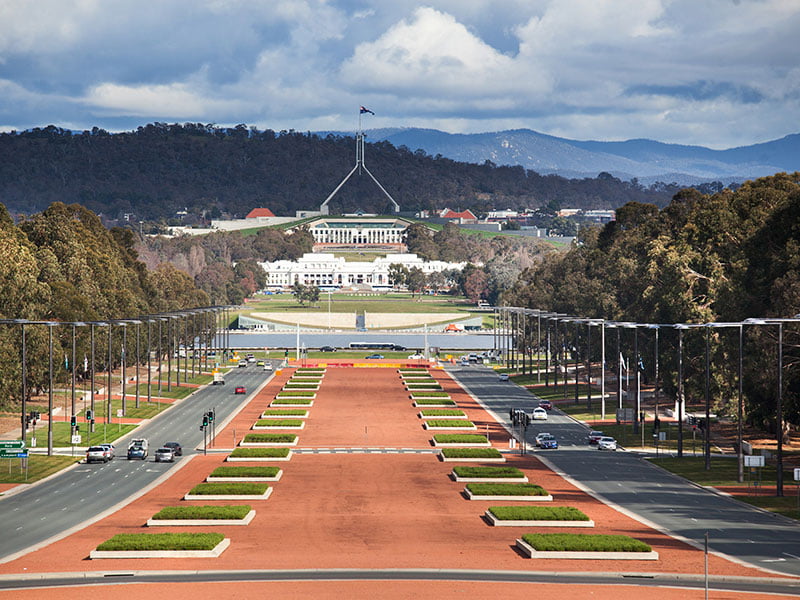Two dozen representatives from Australian science, research, universities, defence, and investment attended Industry minister Ed Husic’s Science and Commercialisation skills roundtable.
Convened by Mr Husic ahead of Prime Minister Anthony Albanese’s Jobs and Skills Summit to be held at Parliament House in the first week of September, the roundtable was one of five being used to inform the main event, where invites are limited to around 100.
According to people present at the Science and Commercialisation skills roundtable, it was a constructive and positive discussion with an engaged minister that ended up running overtime.

The Science and Commercialisation discussion was chaired by Industry department deputy secretary Narelle Luchetti, with several portfolio agencies also observing the 24 invitees’ discussion.
Scientist were represented by Australian Academy of Science president Professor Chennupati Jagadish, Australian Academy of Technology and Engineering president Professor Hugh Bradlow, Australian Council of Learned Academies director Professor Richard Holden, Science and Technology Australia chief executive Misha Schubert, Australian Mathematical Sciences Institute chair Dr Les Trudzik, and Astonomy Australia Limited board director Dr Sarah Pearce.
Individual prize-winning scientists Dr Dana M. Bergstrom and Professor Edward C. Holmes were also on the guestlist.
Leaders from Australian education took part, including Universities Australia policy director Dr Liz Eedle, Group of Eight chief Vicki Thomson, ATN executive director Luke Sheehy, Innovative Research Universities executive director Paul Harris, TAFE directors Australia managing director Stephen Brady, the Australian Science Teachers Association president Rosemary Anderson.
Organisations directly involved in commercialisation and translation were represented by Knowledge Commercialisation Australasia chair Quin Chang, Cooperative Research Australia chief Jane O’Dwyer, and Cicada Innovations chief executive Sally-Ann Williams.
Ms Williams championed the impact of deep tech and said there was an acknowledgement at the table that commercialising deep tech businesses did not have to be a zero-sum game with fundamental research.
“When we grow a science and engineering business, we actually grow a pipeline of opportunities for more research engagement, for more jobs and for more opportunities, as well as fundamental challenges that we’re facing,” Ms Williams told InnovationAus.com
“I thought it was a really constructive, conversation and that [message] was well received.”
Indigitek director Ben Armstrong, Deadly Science chief executive Corey Tutt and the Women in STEM ambassador Professor Lisa Harvey-Smith were also present.
Defence was represented by Defence Science and Technology Group chief scientist Dr Tanya Monro, while Australia’s private investors had a sole representative with Australian Investment Council head of policy and research Dragan Misic.
The federal government had its own representatives with Industry Innovation and Science Australia chair Andrew Stevens, as well as the chair of the Entrepreneurs Program advisory group Tony Surtees.
Roundtable observers included CSIRO board chair Kathryn Fagg, Chief scientist Dr Cathy Foley, IP Australia deputy director general, policy and corporate division Margaret Tregurtha, and Questacon general manager of science and learning Dr Bobby Cerini.
Ms Williams said she hoped the Canberra Jobs and Skills Summit next month will recognise the diverse range of skills needed in a complex and innovative economy. There is a significant difference between the skills needed for a research breakthrough and the process of commercialising it at scale, she said.
“When we’re actually talking at the pointy end of scaling up a business and bringing a product to market, particularly if there’s a manufacturing component in it or a physical component in it — think about our space sector or things like that — we actually need a different skill set that’s not research skill sets, necessarily,” Ms Williams said.
“Then it’s production engineering. It’s people that have got the ability to understand and how to integrate in a complex global supply chain to deliver products of value. And I think that’s where in Australia, we haven’t necessarily talked about that skill set or developed enough yet.”
Do you know more? Contact James Riley via Email.


Its a shame that none of the representatives at the Science and Commercialisation skills roundtable are currently ‘doing’ commercialisation in a start-up/small company set up. Opportunity missed. Current, lived in experience would have provided interesting and relevant insights. I have worked in my start up for five years and I (or someone similar) should have been invited to contribute.
Cicada Innovations chief executive Sally-Ann Williams studied international relations and Japanese. How is that connected to word salad like “the pointy end of scaling up a business”? What is there in a Japanese language course about “bringing a product to market, particularly if there’s a manufacturing component in it or a physical component in it — think about our space sector”. Is there manufacturing and space tech in a Japanese course? “We actually need a different skill set” – but who is “we”? Maybe you’re wondering why people from the foreign languages department are trying to talk about science, commercialisation, research, manufacturing, business, logistics, value and engineering “at scale”. I’m wondering about that too. Right now I don’t have an answer.